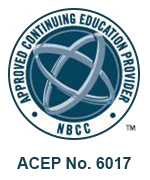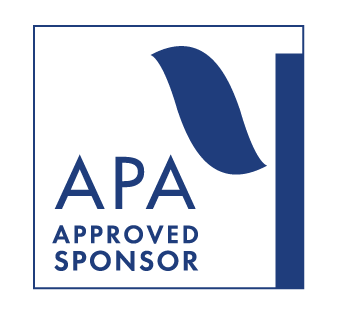Weekend Conference Feb 5-7, 2021
For Registered Participants
Thank you for joining us for Dr. Solms’ presentation.
Weekend registrants can access Dr. Solms’ powerpoint slides here:
Mark Solms Feb 5-7 presentation
Mark Solms Feb 6 The Dreaming Brain
Please use the same password you were given to join the zoom presentation to access these documents.
Program Date(s):
February 5, 2021 - February 7, 2021Program Chair
Douglas Dennett, MD and Becky Bailey, PhD
Weekend Overview
Dr. Solms will provide several presentations which cover changes in our understanding of the conscious mind, the unconscious mind, emotions, and dreaming since the time of Freud along with the implications of these changes for clinical technique. He will discuss the 7 affects: lust, seeking, rage, fear, panic/grief, care, and play and how the competition of these drives guides our understanding of our patients.
His unique background as an analyst and a neuropsychologist has furthered his efforts to re-examine some of Freud’s core principles in light of what we know from neuroscience today. He will cover topics such as the emotional drives, repression, the location of the unconscious in the brain and how these new understandings can be applied to clinical practice.
His Saturday morning presentation which is open to the public is entitled, “The Dreaming Brain,” where he will discuss emotional regulation, memory consolidation, the problem solving of dreams, and the way dreams protect sleep.
Dr. Solms is a superb educator, who speaks clearly and succinctly often in simple language, making some of Freud’s complex ideas palatable and digestible. His style of teaching facilitates consolidation of concepts through his method of reviewing and linking ideas across presentations.
This weekend conference is being offered as live, online videoconferences in response to concerns regarding the COVID-19 virus.
The live on-line conference will include lectures, case presentations, and large and small group discussions. Participants will be able to fully engage in discussion using the Zoom videoconference platform, available for free download.
The daily schedule will include breaks for stretching and for lunch.
Friday 10:00am – 6:10 pm EST
Saturday 9:45 am – 6:20pm EST
Sunday 10:00 am – 2:00pm EST
IPI staff will be available to help you install and test your Zoom connection prior to the conference, and in case of difficulties during the conference.
Mark Solms, PhD
 Professor Mark Solms was born in 1961. He was educated at Pretoria Boys’ School and the University of the Witwatersrand. He emigrated to England in 1988. There he worked at University College London and the Royal London Hospital, while he trained at the Institute of Psychoanalysis. He returned to South Africa in 2002, and now holds the Chair of Neuropsychology at the Neuroscience Institute of the University of Cape Town and Groote Schuur Hospital. His rating by the National Research Foundation is ‘A1’ and he is a Member of the Academy of Science of South Africa. He has received numerous prizes and honours, such as the Sigourney Prize, the IPA’s Outstanding Scientific Achievement Award and Honorary Fellowship of the American College of Psychiatrists. He is Training Director of the South African Psychoanalytical Association, Director of the Science Dept of the American Psychoanalytic Association and Research Chair of the International Psychoanalytical Association. He has published 350 articles in both neuroscientific and psychoanalytic journals, and he has authored eight books. The Brain and the Inner World was translated into 13 languages. His collected papers were published recently as The Feeling Brain. His next book, The Hidden Spring, will appear in early 2021. He is the editor and translator of the forthcoming Revised Standard Edition of the Complete Psychological Works of Sigmund Freud (24 vols) and Complete Neuroscientific Works of Sigmund Freud (4 vols).
Professor Mark Solms was born in 1961. He was educated at Pretoria Boys’ School and the University of the Witwatersrand. He emigrated to England in 1988. There he worked at University College London and the Royal London Hospital, while he trained at the Institute of Psychoanalysis. He returned to South Africa in 2002, and now holds the Chair of Neuropsychology at the Neuroscience Institute of the University of Cape Town and Groote Schuur Hospital. His rating by the National Research Foundation is ‘A1’ and he is a Member of the Academy of Science of South Africa. He has received numerous prizes and honours, such as the Sigourney Prize, the IPA’s Outstanding Scientific Achievement Award and Honorary Fellowship of the American College of Psychiatrists. He is Training Director of the South African Psychoanalytical Association, Director of the Science Dept of the American Psychoanalytic Association and Research Chair of the International Psychoanalytical Association. He has published 350 articles in both neuroscientific and psychoanalytic journals, and he has authored eight books. The Brain and the Inner World was translated into 13 languages. His collected papers were published recently as The Feeling Brain. His next book, The Hidden Spring, will appear in early 2021. He is the editor and translator of the forthcoming Revised Standard Edition of the Complete Psychological Works of Sigmund Freud (24 vols) and Complete Neuroscientific Works of Sigmund Freud (4 vols).Schedule of Presentations
*Attendance at all sessions including Small Group Discussion is Mandatory to receive the CE/CME certificate
Educational Objectives
Changes in our understanding of what is conscious and what is unconscious
- Participants will be able to define neuropsychoanalysis.
- Participants will list an example of how the body is represented in the mind according to neuroscientific evidence and Freudian theory.
- Participants will describe two brain mechanisms of consciousness.
- Participants will select two pieces of evidence that support that most cognitive processes are unconscious.
Friday morning GAM group following main lecture (above)
- Participants will discuss a case or a personal example in the small affective learning group that illustrates what is conscious and what is unconscious according to Solms.
- Participants will identify an example of a conscious or unconscious mechanism that applies to the group process.
Changes in our understanding of emotion
- Participants will summarize one explanation of the foundational role that affect plays in how and why consciousness arises in the brain.
- Participants will list the seven primary emotions/drives according to Solms.
- Participants will discuss an example of conflicting drives.
Friday afternoon GAM group
- Participants will discuss at least one of the primary drives/emotions that apply to the affective group process.
- Participants will identify how a primary drive shapes understanding of self or a case example.
The Dreaming Brain
- Describe the basic brain regions responsible for dreaming
- Describe the neuropsychological basis for meaningfulness in dreams.
- Participants will select an example of the scientific evidence for and against psychoanalytic dream theory.
Saturday morning GAM group
- Within the small affective group, participants will apply psychoanalytic dream theory to a personal or case example.
- Within the small group, participants will discuss how dreams protect sleep as defined by Solms.
Implications of neuropsychoanalysis for clinical practice and technique
- Using the large group discussion, participants will be able to explain the importance of the concept of prediction and how this impacts treatment.
- Participants will describe one reason why play is important in psychoanalytic treatment.
- Participants will use a clinical example of the role of neuroscientific knowledge in treatment
Saturday afternoon GAM group
- Within the small group, participants will summarize one of the ways that the concepts presented during the weekend can be applied to treatment.
- Within the small group, participants will discuss how an understanding of a brain mechanism can be applied to treatment.
Saturday Plenary
- Participants will identify at least one concept from the theory, clinical case material or personal experiences as they relate to drives/affects as defined by Solms.
- Participants will apply at least one of the primary affects as it pertains to the organizational process during the weekend.
- Participants will critique the benefits and limitations of attending this conference by way of video platform.
Clinical Case Presentation:
- Participants will explain one example of the clinician’s use of transference or countertransference in the clinical case presentation.
- Participants will be able to describe one reason Solm’s conceptualization of play is important in psychoanalytic treatment.
Sunday morning GAM group
- Within the small group, participants will summarize one of the ways that the concepts presented during the weekend can be applied to treatment.
- Within the small group, participants will discuss how an understanding of a brain mechanism can be applied to treatment.
Closing Dialogue – Integrating the weekend conference experience
- Utilizing the large group discussion, participants will apply each of the concepts of conscious/unconscious, the dreaming brain, and affect/drives to their professional work.
- Participants will be able to provide an example of the integration of neuroscientific knowledge and Freudian theory.
Registration
Click Register Now and choose one of the following options:
Full Conference:
$497 up to 21 days in advance; $517 thereafter
*Full members: $359
*Associate members: $410
Full time students: $150
Saturday One Day (morning and afternoon): $150
Saturday Morning only: $45
*Login to the website with your member information to access your discounted registration rate
Continuing Education Credit Hours
Weekend Conference:
14.5 CE/CME credits
Saturday One Day:
6 CE/CME credits
Saturday Morning only:
2.5 CE/CME credits
Continuing Education Information
This activity has been planned and implemented in accordance with the accreditation requirements and policies of the Accreditation Council for Continuing Medical Education (ACCME) through the joint providership of American Psychoanalytic Association and the International Psychotherapy Institute. The American Psychoanalytic Association is accredited by the ACCME to provide continuing medical education for physicians.
The American Psychoanalytic Association designates this Live Activity for a maximum of 14.5 AMA PRA Category 1 Credit(s)™. Physicians should claim only the credit commensurate with the extent of their participation in the activity.
IMPORTANT DISCLOSURE INFORMATION FOR ALL LEARNERS: None of the planners and presenters of this CME program have any relevant financial relationships to disclose.
The International Psychotherapy Institute, IPI, is approved by The American Psychological Association to sponsor continuing education for psychologists. IPI maintains responsibility for the program and its content. The International Psychotherapy Institute has been approved by NBCC as an Approved Continuing Education Provider, ACEP No. 6017. Programs that do not qualify for NBCC credit are clearly identified. The International Psychotherapy Institute is responsible for all aspects of the programs. The International Psychotherapy Institute is an approved sponsor of the Maryland Board of Social Work Examiners for continuing education credits for licensed social workers in Maryland. The International Psychotherapy Institute is recognized by the New York State Education Department’s State Board for Social Work as an approved provider of continuing education for licensed social workers #SW-0299.
Participants are responsible for verifying that IPI CE credit is accepted by the licensing boards in their own states. Please note: At this time we are aware that CE credit for IPI events will not be accepted by the New Jersey Board of Social Work.


Membership Benefits
Become a member of IPI at the “Associate Member PLUS”, or “Full Member PLUS” level and you will receive an IPI Zoom Pro account as one of your member benefits. Associate and Full Members also receive discounted registration fees for most of IPI’s events, a subscription to PEP Web, the online psychoanalytic library, and other benefits depending on membership level.
HIPAA compliant Zoom video accounts are provided for all IPI Associate Member Plus and Full Member Plus memberships. IPI has a HIPAA Business Associate Agreement with Zoom, which provides a HIPAA compliant platform for our accounts. HIPPA compliance is strongly recommended for all internet-mediated clinical work and clinical teaching. The “PLUS” add-on to the IPI membership gives the user the ability to host online meetings with multiple people at the same time. [Current members can upgrade to the “Plus” account and only pay the difference in price from your current membership level.]

